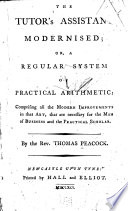 | Thomas Peacock - Arithmetic - 1791 - 302 pages
...how to perform thofe queftions that require two fuppofitions to find the number fought. R "U LE. Take any two. convenient numbers, and proceed with each according to the conditions of the queftion. Then, find how much the refults are different from the refults in the queftion, and call... | |
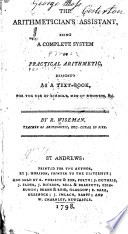 | R. Wiseman - Arithmetic - 1798 - 124 pages
...'cannot be adapted to all the conditions of it, it may be .refolved by two fuppofitions. RULE I — Take any two convenient numbers, and . proceed with each ' according to the conditions of the queftion; and find the differences betwixt the refults and given numbers, which call errors. II. —... | |
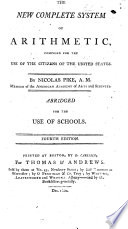 | Nicolas Pike - Arithmetic - 1802 - 350 pages
...or dimini:hed by fome given number which b no known part of the number required. RULE* i. — Take any two convenient numbers, and proceed with each according to the conditions of the queflioru 2. Place the refuît or errors againft their pofiriont or fuppofed Pos. Err. 30 12 number»,... | |
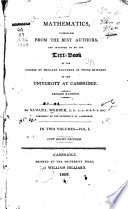 | Samuel Webber - Mathematics - 1808 - 466 pages
...POSITION. Double Position teaches to resolve questions by makingtwo suppositions of false numbers. 1. Take any two convenient numbers, and proceed with each according to the conditions of the question. 2. Find how much the results are different from the result • in the question. 3. Multiply each of... | |
 | Nicolas Pike - Algebra - 1808 - 470 pages
...increased or diminished by some given number, which is no known part of the number required. RULE.* 1. Take any two convenient numbers, and proceed with each according to the conditions of the question. 2. Place the result or errours against their positions or supposed Pos. Err. 30 _ -, 12 numbers, thus,... | |
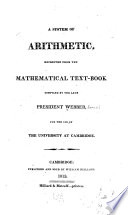 | Samuel Webber - Arithmetic - 1812 - 260 pages
...by making two suppositions of false numbers. j • • '* • * '. • .' RWLE.* • - • . 1. Take any two convenient numbers, and proceed with each according to the conditions of the question. . . - < * The rule is founded on this' supposition, that the first error is to the second, as Jfie... | |
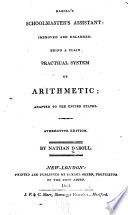 | Nathan Daboll - Arithmetic - 1815 - 250 pages
...POSITION, 1 BACHES to resolve questions by making two suppositions of false numbers.* RULE. 1. Take any two convenient numbers, and proceed with each according to the conditions of the question. 2. Find how much the results are different from the results in the question. 3. Multiply the first... | |
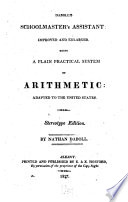 | Nathan Daboll - Arithmetic - 1817 - 252 pages
...question. 3. Multiply the first position by the last error, and the last position by the first error. 4. If the errors are alike, divide the difference of the products by tha difference of the errors, and the quotient will be the answer. 5. If the errors are unlike, divide... | |
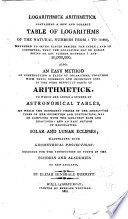 | Arithmetic - 1818 - 264 pages
...DOUBLE POSITION teaches to resolve questions by making two suppositions of false numbers. RULE. 1. Take any two convenient numbers, and proceed with each according to the conditions of the question. 2. Find how much the results are different from the result in the question. 3. Multiply the first position... | |
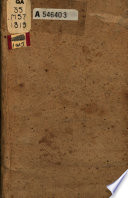 | Phinehas Merrill - Arithmetic - 1819 - 116 pages
...Take any two convenient numbers,and proceed with each according to the condition of the question. 2. Find how much the results are different from the result in the question. 3. Multiply each of the errors by tho contrary supposition, and find the sum and difference of the... | |
| |